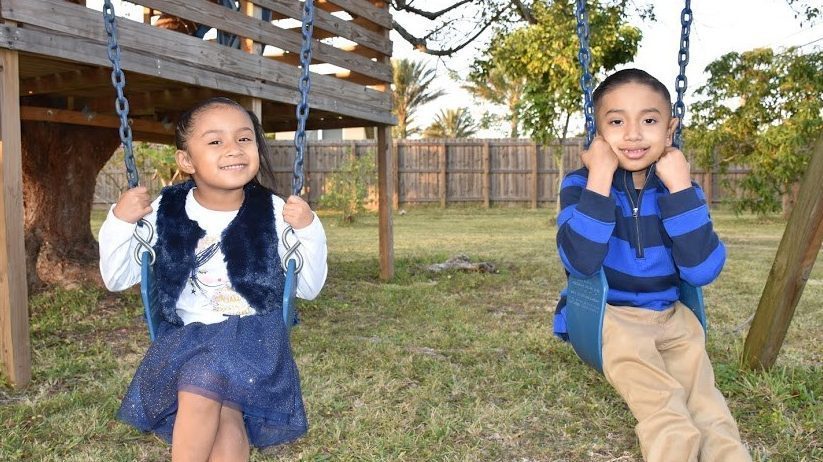Julian’s Life
A family’s uphill battle against the lack of Hispanic bone marrow donors
Julian Morales is like many eight-year-old kids we know. He loves playing with his friends, watching Teenage Mutant Ninja Turtles, and eating chocolate cake. However, there’s a catch – if Julian doesn’t find a bone marrow match soon, his life is at stake.
At age three, Julian was diagnosed with a life-threatening disease called dyskeratosis congenita. In very severe cases, dyskeratosis congenita causes bone marrow failure. Bone marrow is vital for our survival because it creates all of our blood cells.
A Perfect Match Backs Out
Unspeakable Pain
When Julian was diagnosed with dyskeratosis congenita, his doctors found a match within a few months. The chances of this happening are next to none; it was as if Julian had just won the lottery. After hearing the great news, Julian’s parents, Mayra and Dany, recall making plans to do all of the things Julian had wanted to do but couldn’t. All of this came crashing down when Julian’s donor suddenly backed out. Mayra and Dany were so desperate for this transplant that they even considered selling their home to pay the donor, but their attempts to persuade him were to no avail. Devastated and defeated, Mayra and Dany watched as their son’s once-in-a-lifetime shot at survival came and went in a matter of days.
Mayra and Dany took to the streets and began working at bone marrow drives as well as speaking at local events to promote swabbing in their community. Their efforts have led to over 96 bone marrow drives to find a match for Julian, where over one thousand potential donors have been swabbed.
A Second Perfect Match Backs Out
Abandoned Yet Again
In September 2019, something incredible happened; Julian's second perfect match was found. Relief and hope washed over Mayra and Dany. Years of tireless advocacy and swabbing finally seemed to pay off – or so they thought. Julian's perfect match backed out a few days later, and the Morales family was left heartbroken. Not one, but two registered donors who are perfect matches have let Julian down. Unfortunately, Julian is still looking for a match – without one, his life expectancy is cut short and health status will decline. Right now, Julian is giving this fight his all, and the search for his match continues.

A Fun Day at the Park
Julian with his sister and best friend
How It Works
The Greater Issue
Julian’s predicament is indicative of a much greater issue. Our worldwide stem cell and bone marrow registries are not nearly diverse enough. Be The Match is run by the National Marrow Donor Program in the United States and claims to be the largest and most diverse marrow registry in the world. However, as of 2017, only 7% of Be The Match’s registry was made up of Hispanic donors. It's imperative to diversify our stem cell and bone marrow registries because genetic background plays a fundamental role in finding our match. When specialists look for a patient's match, they compare the HLA (human leukocyte antigen) proteins found in donors’ cells with the HLA proteins in the patient’s cells. We inherit half of our HLA proteins from our parents. Consequently, a donor with the same ethnic background as us is more likely to have similar HLA proteins and be our genetic match. Therefore, Julian (a half Mexican and half Nicaraguan boy) has a higher chance of finding his match amongst Hispanic donors, especially if they are Mexican-Nicaraguan.
The Fight Isn’t Fair
Let's Get Swabbing
Finding a match is a complicated process for anyone, but finding a match when you are not white is exceptionally difficult. Julian’s mixed Hispanic background makes his odds of finding a match significantly less likely. Currently, Julian’s survival depends on more Hispanics getting swabbed. To help patients like Julian, we need to raise awareness and get people – especially of underrepresented ethnicities – to sign up for stem cell and marrow registries. Diversity matters, and we need to get swabbing!